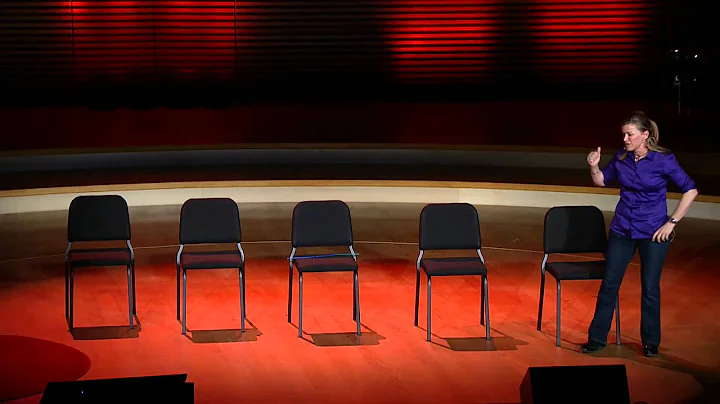
I read an article saying that the best way to be a human being is to "pretend to be confused with understanding." He knows everything, but he looks like "smart is stupid", not ostentatious or glorious. Because even if a person is full of wisdom, if he keeps talking and says everything through it, he will "expose his sharpness", and at the least he will be envied and at the worst he will be retaliated. I read
, and my heart skipped a beat, feeling that this sentence seemed right and wrong. If you say it right, you feel that it does reflect to a certain extent " great wisdom and foolishness ", which is a kind of open-mindedness, a kind of freedom and wisdom; if you say it wrong, you feel that it is promoting "inconsistent hearts and mouths", which is a kind of hypocrisy, a kind of artificiality, and a kind of treacherous.
Think about it carefully again. The two ideas seem to be water and fire, but in fact they have their own reasons. However, the perspective is limited to one specific angle, and the reason can only be "one-sided truth". Looking comprehensively, when dealing with personnel affairs, those who advocate "pretending to be confused" attitude have different people and different motives. Some are open-minded, free and easy, and wise, while others are actually hypocritical, artificial, and treacherous.
belongs to "open-minded, free and easy, and wise", and most of them have the state of being simple and clumsy. As Laozi said in , , it is simple and natural, "fewer selfishness and fewer desires." The reason why they sometimes "pretend to be confused when they understand" is that they know that "the water is clear and there is no fish, and the person is careful and there is no disciple." They have principles for major matters, do not care about small matters, and "it is rare to be confused" after all, they are not competitive, they are more competitive, they are more tolerant, and make good connections in order to do what they want to do well.
. For those who are not "less selfish and few desires" but have strong selfish intentions, they "pretend to be confused with their understanding", or in the case of complex struggles, they dare not show what they know in order to protect themselves; or in order to please some people, they are unwilling to tell the truth and deliberately "pretend to be confused"; or in order to climb up, they conceal what should not be concealed, and use "pretend to be confused" as a means of retreating as advancement. Such "pretending to be confused with understanding" is hypocrisy, artificial, and treacherous.
Therefore, the phenomenon of "pretending to be confused with understanding" needs to be analyzed in detail. "Pretending to be confused" cannot be generally deny, and "pretending to be confused" cannot be generally affirmed. Nowadays, some people follow the famous saying of Zheng Banqiao , "It's rare to be confused". It is not very accurate to praise "pretending to be confused" in dealing with people. The reason why Zheng Banqiao regards "rare confusion" as his philosophy of life is determined by the living environment he lives in. Zheng Banqiao in the Qianlong period of the Qing Dynasty was the magistrate of Weixian, Shandong Province. He was honest and honest and often mocked and troubled by evil forces. It is said that under his confusion and pessimism, he wrote down the words "Rare to be confused" in order to seek peace of mind, and then resigned from office and retired. Obviously, what is revealed is a negative idea of avoiding the world, which is contrary to the requirements of our times and the spirit of the times today. At present, all honest and upright people should be proactive, selfless and fearless, avoid "confusion", dare to draw the sword in the face of major issues, and dare to face difficulties in the face of contradictions and problems. When people get along with each other, they should treat each other sincerely, not be false, and should not deliberately "not even show the right and wrong in their hearts" (Lu Xun's "Samama of the World").

"Pretending to be confused when you understand" is not equivalent to "sense of wisdom and foolishness". The phrase "Great wisdom is like foolishness" was first seen in Su Shi's " Heroes the Resignation of Young Master Ouyang ", reflecting Taoist thoughts . The "fool" in it is not really stupid, but refers to a simple state. The Tao Te Ching says: "Tao is always nameless and simple. Even though it is small, no one in the world can submit to it." It means: "Tao" is always nameless and simple. Although it is very small and invisible, no one in the world can make it obey itself. "Simple" is close to the essence of "Tao". Therefore, while "smart and foolish" people are wise, they also require open-mindedness, simple and unpretentiousness, and be kind and loving, rather than pretending to be crazy and stupid for their own desires, and their appearances are different. Any act of pretending, disguising, or sophisticated is contrary to the essence of "simple".
For a long time, China has been prevalent in its self-protection culture, and people are worldly-wise when they get along with each other."If you only say three parts of your words when you see someone, you can't just throw them away", "If you leave half a word when you say something, you will let three parts when you are about to come", "If you are sophisticated and speak less, you will see through human feelings but nod your head", etc. are all worldly philosophy. In his article "Samama of the World", Lu Xun talked about his "unreasonableness" and was neglected, saying that he realized from this that "it is better not to ask about right and wrong, and just follow everyone, and better not to speak..." However, this is Lu Xun's sarcasm, and he continued to point out, "I'm afraid young people may not take my words; even middle-aged and elderly people may think that I am teaching their children."
Nowadays, those who "pretend to be confused by their understanding" are mostly caused by "being disturbed by selfishness, trapped by human feelings, burdened by relationships, and confused by interests." When "pretending to be confused" is connected with selfishness, there must be no open-mindedness, freedom and wisdom, but only hypocrisy, artificial, and treacherous. Based on this, I think that when dealing with people, we should advocate more distinction between right and wrong, be a wise person, and not "pretend to be confused". Even if we are "wise and foolish", we should "not be confused about big things". I think it is inappropriate to learn to "pretend to be confused with understanding" as "the realm of being a human being" and is a "necessary practice" for people. I think it is inappropriate and will "teach children badly."
Author: Jiang Zengpei
Editor: Wu Dongkun











